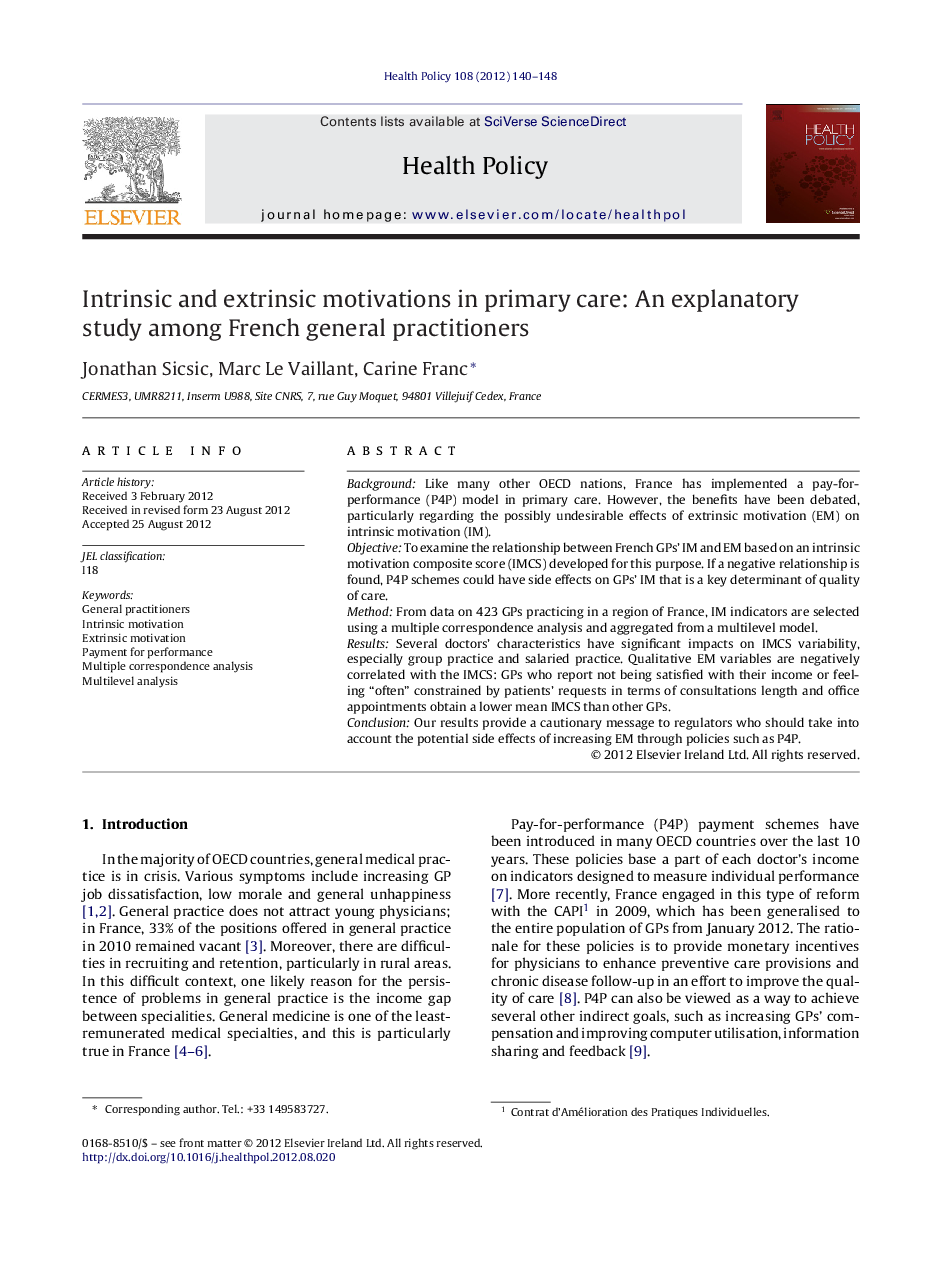| Article ID | Journal | Published Year | Pages | File Type |
|---|---|---|---|---|
| 4197872 | Health Policy | 2012 | 9 Pages |
BackgroundLike many other OECD nations, France has implemented a pay-for-performance (P4P) model in primary care. However, the benefits have been debated, particularly regarding the possibly undesirable effects of extrinsic motivation (EM) on intrinsic motivation (IM).ObjectiveTo examine the relationship between French GPs’ IM and EM based on an intrinsic motivation composite score (IMCS) developed for this purpose. If a negative relationship is found, P4P schemes could have side effects on GPs’ IM that is a key determinant of quality of care.MethodFrom data on 423 GPs practicing in a region of France, IM indicators are selected using a multiple correspondence analysis and aggregated from a multilevel model.ResultsSeveral doctors’ characteristics have significant impacts on IMCS variability, especially group practice and salaried practice. Qualitative EM variables are negatively correlated with the IMCS: GPs who report not being satisfied with their income or feeling “often” constrained by patients’ requests in terms of consultations length and office appointments obtain a lower mean IMCS than other GPs.ConclusionOur results provide a cautionary message to regulators who should take into account the potential side effects of increasing EM through policies such as P4P.
